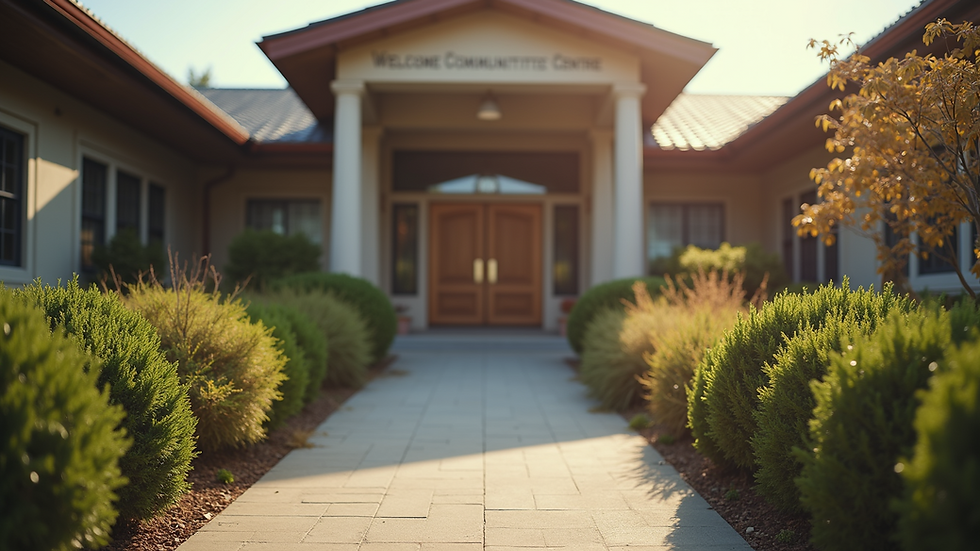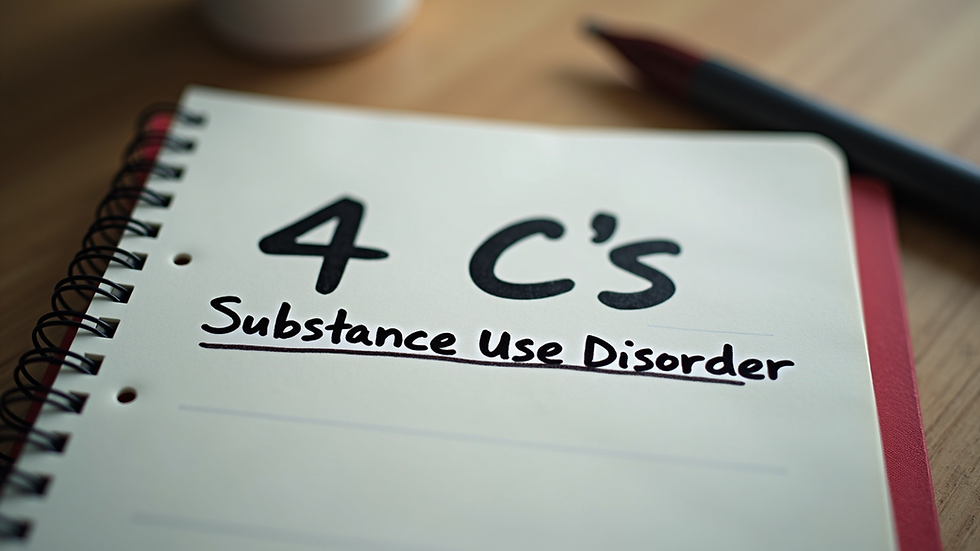How to Find Help for Substance Use Challenges
- Linda Ventura

- Aug 20, 2025
- 3 min read
Struggling with substance use challenges can feel overwhelming and isolating. However, help is available, and finding the right support can make a significant difference in recovery. This guide will walk you through practical steps to find help, understand the nature of substance use disorders, and access valuable resources. Whether you or a loved one is facing these challenges, knowing where to turn is the first step toward healing.
Understanding the Importance of Substance Support
When dealing with substance use challenges, having a strong support system is crucial. Substance support can come in many forms, including professional treatment, peer groups, family involvement, and community resources. Each type of support plays a unique role in recovery.
Professional Treatment: This includes detox programs, inpatient and outpatient rehab, counseling, and medication-assisted treatment.
Peer Support Groups: Groups like Alcoholics Anonymous (AA) or Narcotics Anonymous (NA) provide a community of individuals who understand the journey.
Family and Friends: Emotional support from loved ones can encourage and motivate ongoing recovery.
Community Resources: Local organizations often offer educational programs, crisis intervention, and referral services.
Finding the right combination of these supports can help create a personalized recovery plan that fits individual needs.

How to Access Substance Support Services
Accessing substance support services can seem daunting, but there are clear steps to follow that simplify the process:
Recognize the Need for Help: Acknowledge that substance use is affecting your life or the life of someone you care about.
Research Local Resources: Look for treatment centers, support groups, and counseling services in your area.
Reach Out for Professional Assessment: Many facilities offer free assessments to determine the level of care needed.
Explore Treatment Options: Based on the assessment, consider inpatient rehab, outpatient programs, or therapy.
Utilize Online Resources: Websites like Thomas Hopes Resources provide valuable information and connections to support networks.
Build a Support Network: Engage with family, friends, and peer groups to maintain motivation and accountability.
Remember, seeking help is a sign of strength, not weakness. Early intervention can prevent more severe health and social consequences.

What are the 4 C's of Substance Use Disorder?
Understanding the 4 C's of substance use disorder can help clarify why professional help is often necessary. These four characteristics define the disorder and highlight the challenges faced by those affected:
Craving: A strong desire or urge to use the substance.
Loss of Control: Inability to limit substance use despite wanting to stop or cut down.
Compulsive Use: Using the substance becomes a priority, often at the expense of other activities.
Continued Use Despite Harm: Persisting in substance use even when it causes physical, psychological, or social problems.
Recognizing these signs can help individuals and their loved ones understand the seriousness of the condition and the need for comprehensive treatment.

Practical Tips for Supporting Someone with Substance Use Challenges
Supporting someone with substance use challenges requires patience, understanding, and practical strategies. Here are some actionable recommendations:
Educate Yourself: Learn about substance use disorders to better understand what your loved one is experiencing.
Communicate Openly: Use non-judgmental language and express concern without blame.
Encourage Professional Help: Offer to assist in finding treatment options or accompany them to appointments.
Set Boundaries: Protect your own well-being by setting clear limits on what behaviors you will tolerate.
Promote Healthy Activities: Encourage involvement in hobbies, exercise, and social events that do not involve substance use.
Stay Patient: Recovery is a process with ups and downs; consistent support is vital.
By combining empathy with practical action, you can be a positive influence in someone’s recovery journey.
Finding Reliable Online and Community Resources
In today’s digital age, many resources are available online to help those facing substance use challenges. Reliable websites provide educational materials, directories of treatment centers, and forums for peer support. Additionally, local community organizations often offer free or low-cost services.
Online Resource Hubs: Websites like Thomas Hopes Resources offer comprehensive guides and links to support services.
National Helplines: Many countries have helplines staffed by trained counselors who can provide immediate assistance and referrals.
Local Health Departments: These often coordinate substance use programs and can connect individuals to nearby services.
Faith-Based Organizations: Some find comfort and support through spiritual communities that offer counseling and group meetings.
When searching for help, verify the credibility of the source and ensure the services meet your specific needs.
Finding help for substance use challenges is a courageous step toward recovery. With the right substance support, understanding, and resources, individuals can overcome obstacles and build healthier, fulfilling lives. Remember, help is available, and you are not alone on this journey. Reach out today and take the first step toward positive change.





Your article rightly highlights that 'finding the right support can make a significant difference' in recovery, emphasizing diverse forms of help like professional treatment. It's a crucial first step, and often, understanding one's mental clarity and focus can empower individuals as they navigate these challenges. For those seeking to explore their cognitive readiness and mental clarity, additional self-assessment tools might offer valuable insights into their journey towards healing.
Motivational quotes in Hindi bring hope and encouragement during stressful moments, and counselling adds a professional approach to manage those feelings. Together, they create balance by strengthening both heart and mind. People who read uplifting quotes often find it easier to follow their counsellor’s advice. The words stay with them throughout the day. In this way, counselling and motivational quotes work hand in hand for healing. Find inspiring Hindi quotes here:
Your article powerfully emphasizes that 'finding the right support can make a significant difference in recovery' from substance use challenges. I particularly appreciate the focus on how understanding the nature of these disorders is the first step towards healing. Often, clarifying this initial understanding empowers individuals to seek the most appropriate professional or peer support options you detail. For those needing a confidential starting point to grasp their situation better, a simple addiction self-assessment can be incredibly valuable in navigating the path to help.